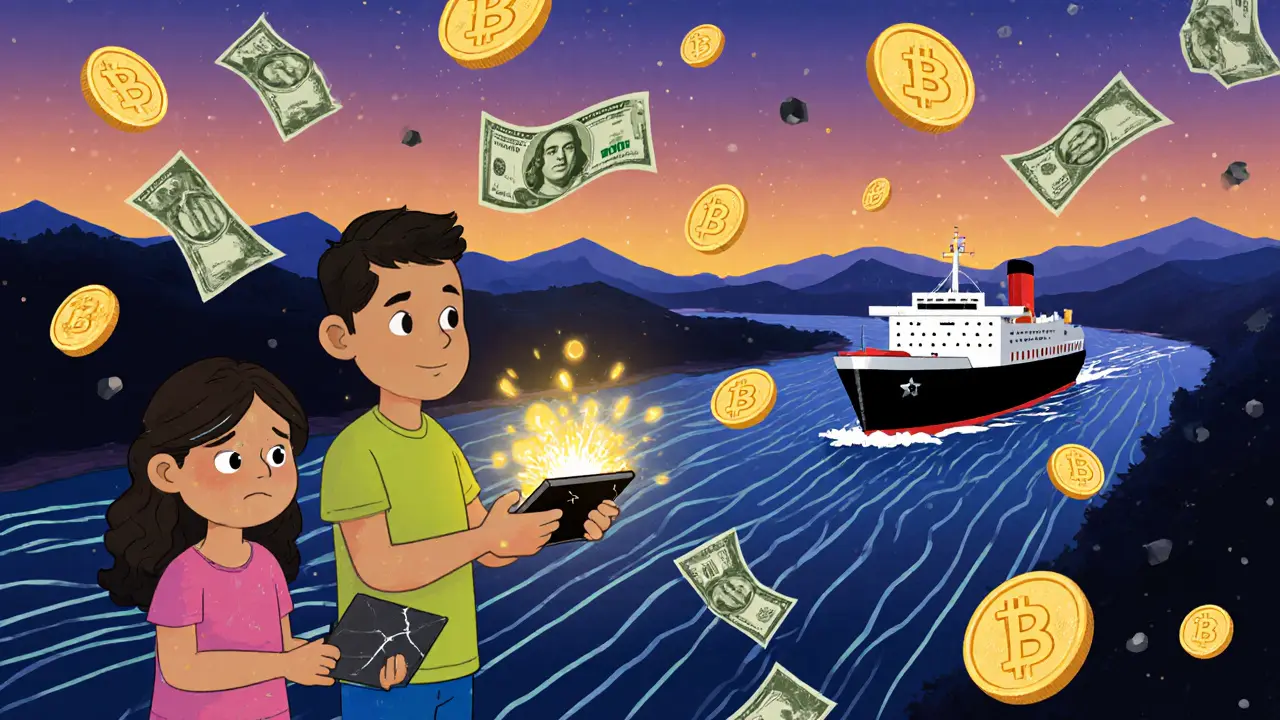
Venezuela Sanctions Converter
Convert Bolívar to USDT
Based on current sanctions evasion patterns and hyperinflation rates (2024 estimates)
Results
Enter bolívar amount to see equivalent USDT value
When the U.S. and European Union slapped sanctions on Venezuela’s oil exports in 2019, the country’s economy was already collapsing. Hyperinflation had turned the bolívar into worthless paper. Banks stopped processing international payments. Foreign companies refused to do business. But instead of surrendering, the government turned to something no one expected: cryptocurrency.
Why Crypto Made Sense for Venezuela
Venezuela didn’t just stumble into crypto. It built a whole system around it. The state launched the PETRO in 2018, a digital currency supposedly backed by the country’s oil reserves. On paper, it was meant to fight inflation. In practice, it was a tool to slip around sanctions. The U.S. Treasury quickly called the PETRO a violation of sanctions. Why? Because it looked like a way for the Venezuelan government to raise money from foreign buyers - something U.S. laws explicitly blocked. But the PETRO wasn’t the real story. It barely moved. What did move was Bitcoin, and more importantly, Tether (USDT). USDT is a stablecoin, meaning its value is tied to the U.S. dollar. For Venezuelans living through daily price spikes on bread and medicine, USDT became a lifeline. It didn’t crash like the bolívar. It didn’t get frozen by banks. And it could be sent across borders without permission.How the Government Turned Crypto Into a Sanctions Shield
The Maduro regime didn’t just let people use crypto. It built the infrastructure to control it. Seven cryptocurrency exchanges were licensed - all owned or heavily influenced by state officials. One of them, Criptolago, is run by Omar Prieto, the governor of Zulia state. He’s personally sanctioned by the U.S. for blocking humanitarian aid. These exchanges didn’t just serve ordinary citizens. They became gateways for the state to move money. PDVSA, Venezuela’s state oil company, started using crypto to sell oil to buyers in Russia, Iran, and China. Instead of using traditional banking, they used OTC brokers in Caracas - shady middlemen who traded cash for crypto. A truck driver might get paid in cash for delivering oil to a hidden dock. That cash then went to a broker, who sent Bitcoin or USDT to a Russian account. No bank involved. No paper trail. In October 2022, the U.S. Department of Justice indicted five Russian nationals for helping PDVSA do exactly this. The indictment laid out how oil was moved on ships in international waters, then paid for with crypto. The Russians used crypto to launder money, buy fuel, and keep the system running. One defendant told investigators: "Crypto is the only way we can do business now. Banks won’t touch us. But crypto doesn’t ask questions."The Role of Stablecoins - Especially USDT
USDT became Venezuela’s secret weapon. Unlike the PETRO, which no one trusted, USDT was already widely used around the world. It was liquid. It was accepted. And it was easy to convert into cash through local brokers. Experts from Chainalysis and the Foundation for Defense of Democracies found that over 80% of Venezuela’s crypto-related transactions involved USDT. Why? Because it’s stable. If you’re trying to buy medicine or send money to family abroad, you don’t want your payment to drop 20% in a day. USDT gave them that. But here’s the catch: USDT isn’t anonymous. Blockchain analysis firms can track where it moves. That’s why the Venezuelan government and its partners started using mixers, privacy coins, and shell companies to hide the trail. Some transactions now go through multiple wallets across different countries before landing in a final account. It’s messy. But it works - for now.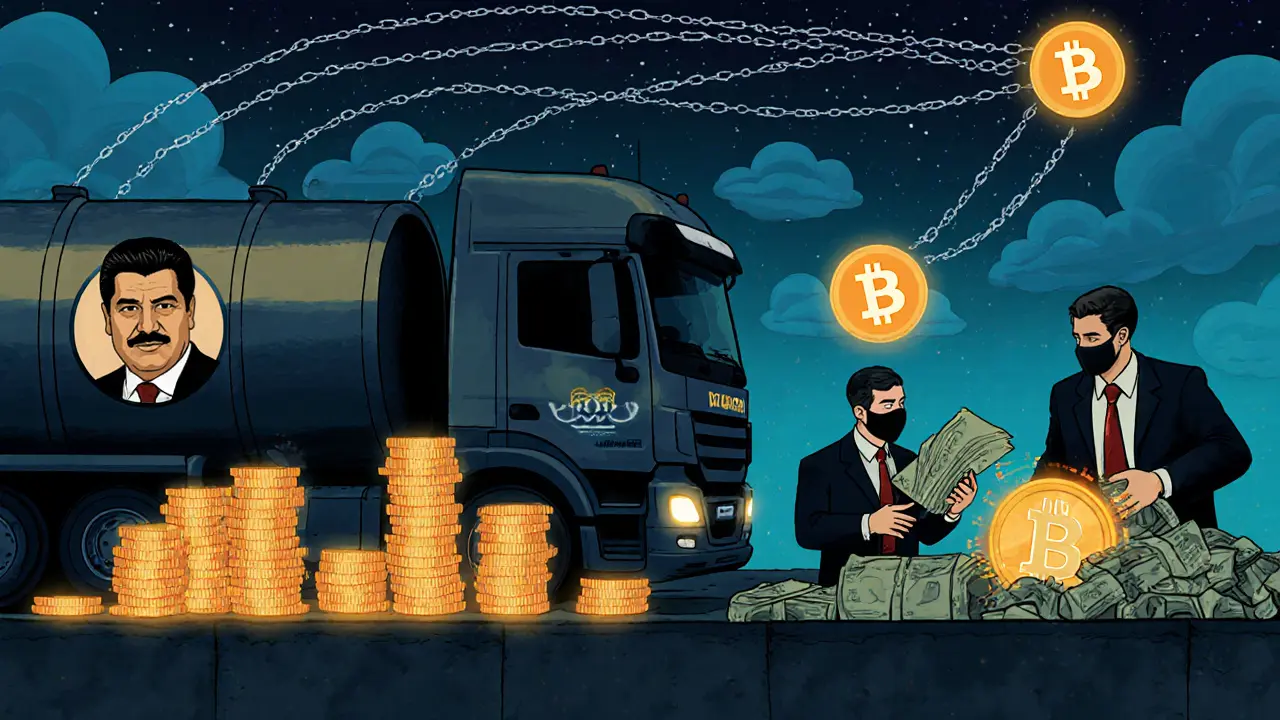
Ordinary Venezuelans vs. The Regime
It’s easy to paint all crypto use in Venezuela as criminal. But that’s not true. Millions of regular people rely on crypto just to survive. A teacher in Maracaibo might get paid in bolívars on Friday. By Monday, those bolívars have lost half their value. So she converts her pay into USDT on a local app. She keeps it there until she needs to buy groceries. Then she cashes out through a broker who gives her dollars in cash. She’s not evading sanctions. She’s avoiding starvation. The problem? The same system that helps her also helps the regime. A broker who serves a teacher might also serve a PDVSA officer. The same exchange that lets a student send money to their cousin in Spain might also be moving oil payments to Russia. There’s no clean separation. And that’s why global banks and crypto platforms now treat any Venezuelan-linked transaction as high-risk.How the World Is Fighting Back
The U.S. Treasury’s Office of Foreign Assets Control (OFAC) has been tracking these flows for years. They’ve sanctioned exchanges, brokers, and even individuals who facilitate crypto transfers for the Venezuelan government. In 2024, they added three more Venezuelan-based OTC brokers to their list. But enforcement is hard. Crypto doesn’t need borders. A broker in Caracas can send USDT to a wallet in Dubai, then have someone there cash it out in pesos. No one knows who’s on the other end. Financial institutions are now using blockchain analysis tools to flag suspicious patterns: large USDT transfers from Venezuelan wallets, rapid movement between multiple addresses, transactions timed with oil shipment dates. If a bank sees a transaction that matches these red flags, it freezes the account - even if the user is just trying to buy food.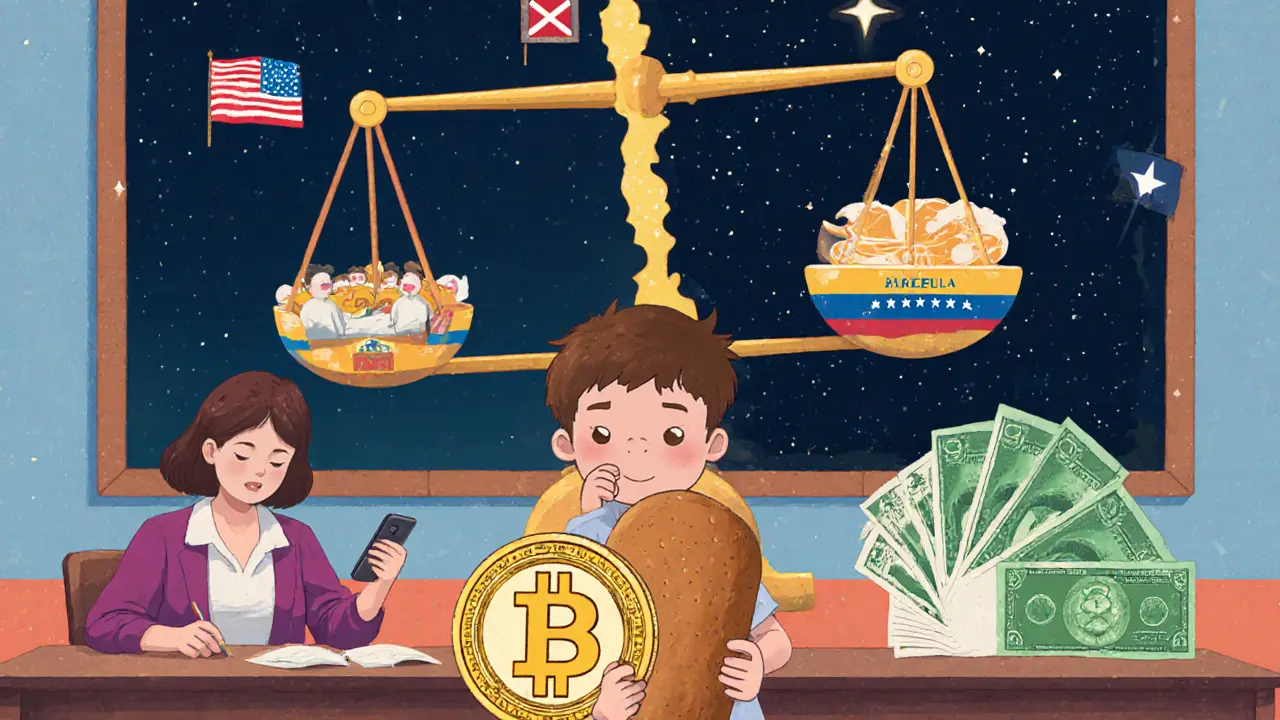
Is This Model Spreading?
Venezuela didn’t invent crypto sanctions evasion. But it perfected it. Other countries are watching. Russia started experimenting with crypto after its 2022 invasion of Ukraine. Iran has been using crypto for years to bypass oil sanctions. North Korea hacks crypto exchanges to fund its weapons programs. But none of them have built a system as deep or as integrated as Venezuela’s. The Maduro government didn’t just use crypto. It made crypto part of the state’s economic engine. It’s not a workaround - it’s the new normal. Experts warn that if Venezuela’s model succeeds, it could become the blueprint for other sanctioned nations. Imagine a world where every country under sanctions runs its own crypto network. Global finance would fracture. The dollar’s dominance could weaken. And tracking illicit money would become nearly impossible.What’s Next for Venezuela’s Crypto Experiment?
In October 2025, the U.S. temporarily eased some sanctions after Maduro agreed to hold elections. But officials made it clear: the relief is conditional. If the elections aren’t free or fair, sanctions will return - and so will the crackdown on crypto. For now, the system keeps running. Oil still moves. Crypto still flows. Brokers still trade cash for USDT. The government still pays its soldiers and spies. And ordinary Venezuelans still use crypto to feed their families. But the tools to track this are getting better. New blockchain analysis software can now trace transactions through multiple layers of obfuscation. Privacy coins like Monero and Zcash are being monitored more closely. Exchanges are forced to comply with stricter KYC rules. The race is on. Venezuela is trying to stay ahead. The world is trying to catch up.For now, crypto remains the only thing keeping Venezuela’s economy from total collapse - and the only tool letting its government dodge the rest of the world.
22 Comments
Write a comment
More Articles
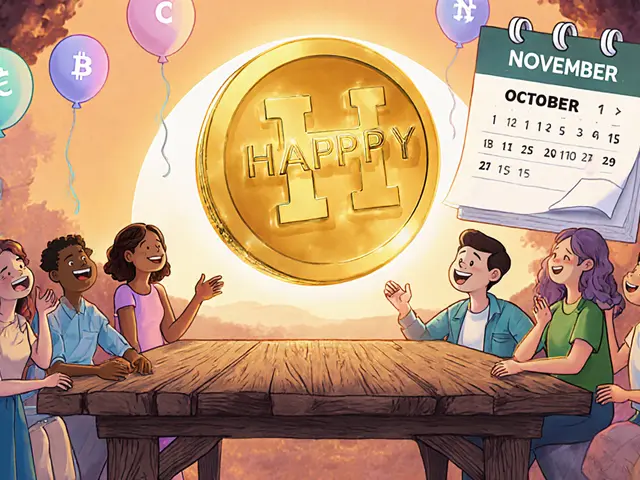
HappyFans (HAPPY) Token IDO Launch & Airdrop Details - Complete Guide
Learn the full story of HappyFans (HAPPY) token IDO, token‑sale figures, NFT airdrop mystery, performance, and 2025 status in one detailed guide.
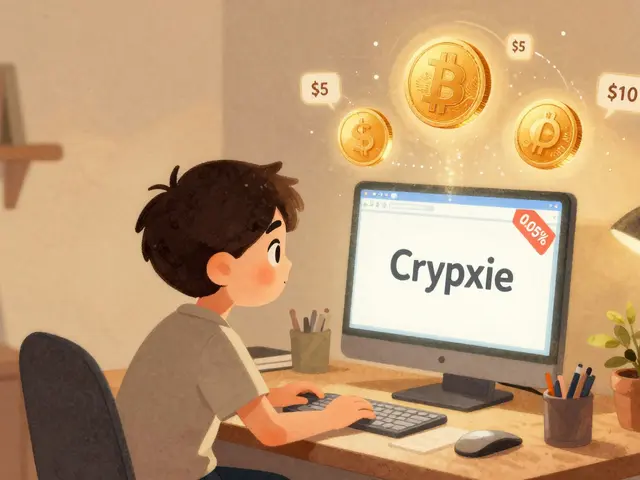
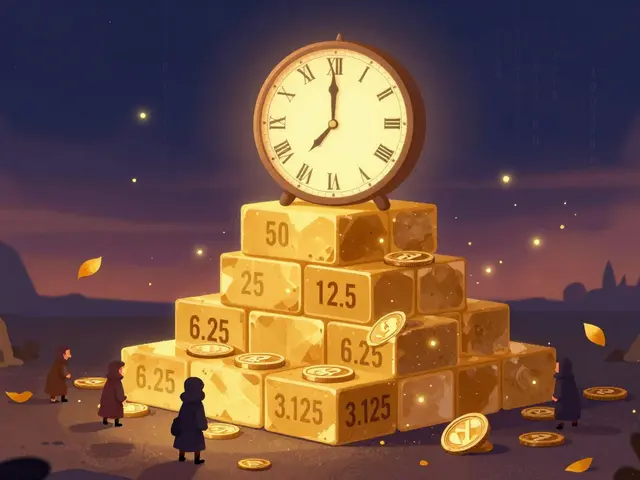
Leo Lanham
November 7, 2025 AT 15:17This whole crypto thing is just a fancy shell game. The regime’s not saving anyone-they’re just laundering cash while people starve. Crypto ain’t freedom, it’s just the new black market.
And now the whole world’s gonna copy this mess. Great.